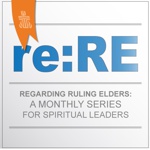When thinking about spiritual leadership, it is helpful to be clear about what might be meant by “spiritual.” For our purposes, “Christian spirituality” is defined as a way of life in relationship to the God we know in Jesus Christ through the power of the Holy Spirit, so that we partner in God’s will being done on earth as it is in heaven.” Breaking down this definition is even more helpful.
A way of life—Christian spirituality is not just about religious feelings and inner experiences. Neither is it something that we turn on at church and off when we go out into the world. Spirituality is a way of being in the world that touches every part of who we are. It has implications for how we live with our neighbors, spend our money, vote, work, play, treat our family, and so on. In the church it moves us to concern not just for the church’s welfare but also for the welfare of our community and the world.
In relationship to God—As the catechism says, we were created to glorify God and enjoy God forever (Book of Confessions, 7.001). We were meant from the beginning to have a living relationship with the living God at the center of who we are. Like any relationship, this one needs an investment of time and attention to flourish. This investment includes worship, prayer, study of scripture, along with the use of other means of grace. God is always calling us into deeper relationship through all the events of our lives. As we respond to God’s continuous invitations, life becomes an adventure in faith.
The God we know in Jesus Christ—Christian spirituality is not a relationship with just any God, but to a particular God revealed in scripture and, most fully, in Jesus Christ. Christ, the Lord and head of the church, shows us who God truly is. The relationship we have with God is made possible by his incarnation, life, death, and resurrection. Jesus embodies a God who is eternally for us and is always at work for the good of God’s creation. As his disciples we are called to join God in this work in the world.
Empowered by the Holy Spirit—The Holy Spirit who filled and empowered the first disciples at Pentecost is still available to God’s people today to do God’s work. The Spirit also moves within us to conform us to the image of God’s son (Rom. 8:29.) This means that as we give ourselves to deeper relationship with God, our character will reflect Jesus’ more and more. This is the work of the Spirit in us, not something we do to ourselves. We are empowered both to be God’s faithful people and to do God’s work.
A Spiritual Exercise
Gather a Bible, paper, and pencil, and find a place where you can be undisturbed. Sit comfortably and become quiet inside. Ask God to bless this exercise to draw you closer. Turn to Psalm 23. Use this psalm to help you reflect on your relationship with God. Start with verse one: what does it mean to you that God is your shepherd? How have you experienced this relationship supplying your needs? Continue through the psalm, using verses 2–5 to reflect on your relationship with God from childhood to where you are now. When were you aware that God was leading you? How has God restored your soul?
Write what you remember about these “God sightings” in your life. Move to verse 6 and meditate on what it means to claim these two statements for your future. Conclude by writing a prayer based on your reflections on the psalm. Express to God what you are thankful for, what you need to confess, and how you want to experience your relationship with God in the future.
Questions for thought and discussion
- How has being a member of session affected your relationship with God?
- Where in the life/mission of the church do you feel yourself most able to enjoy and glorify God?
- How much of your church’s time, energy, and money are focused in helping people nurture a spiritual approach to life in the world?
Joan S. Gray has served as teaching elder in twelve congregations. She is the co-author of Presbyterian Polity for Church Leaders, and the author of Spiritual Leadership for Church Officers and Sailboat Church, all published by Westminster/John Knox Press. Joan concluded a two-year term as Moderator of the 217th General Assembly (2006) of the PC(USA) and lives in midtown Atlanta.
For more about the information provided here, please contact Martha Miller at martha.miller@pcusa.org and browse the Ruling Elders website.

